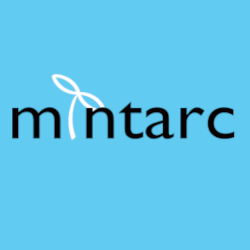Desktop Operating Systems: Difference between revisions
From Mintarc Forge
| Line 18: | Line 18: | ||
*Since FOSS desktop operating systems are typically free to use, they present a cost-effective alternative to proprietary systems like Windows or macOS. This is particularly beneficial for educational institutions, non-profits, and individuals who may have budget constraints. | *Since FOSS desktop operating systems are typically free to use, they present a cost-effective alternative to proprietary systems like Windows or macOS. This is particularly beneficial for educational institutions, non-profits, and individuals who may have budget constraints. | ||
== Benefits of FOSS Desktop Operating Systems == | == Benefits of FOSS/OSS Desktop Operating Systems == | ||
*Freedom and Control: Users have the freedom to modify and redistribute software as needed. This control empowers individuals and organizations to tailor their computing environments. | *Freedom and Control: Users have the freedom to modify and redistribute software as needed. This control empowers individuals and organizations to tailor their computing environments. | ||
*No Vendor Lock-In: FOSS avoids dependency on a single vendor for updates or support. Users can switch between distributions or modify existing ones without significant barriers. | *No Vendor Lock-In: FOSS avoids dependency on a single vendor for updates or support. Users can switch between distributions or modify existing ones without significant barriers. | ||
*Educational Opportunities: FOSS encourages learning about computing concepts by allowing users to explore source code and understand how software works. | *Educational Opportunities: FOSS encourages learning about computing concepts by allowing users to explore source code and understand how software works. | ||
*Robustness: Many FOSS desktop operating systems are known for their stability and performance. They can run efficiently on older hardware, extending the lifespan of devices. | *Robustness: Many FOSS desktop operating systems are known for their stability and performance. They can run efficiently on older hardware, extending the lifespan of devices. | ||
Revision as of 06:04, 25 December 2024
Desktop Operating Systems
FOSS /OSS desktop operating systems are designed primarily for personal computing environments. They provide users with a graphical user interface (GUI) and a wide range of applications for everyday tasks such as web browsing, document editing, multimedia consumption, and gaming.
Characteristics
User-Friendly Interfaces
- FOSS desktop operating systems often come with intuitive graphical user interfaces that make them accessible to users of all skill levels. Many distributions offer various desktop environments (DEs), allowing users to choose the interface that best suits their preferences, such as GNOME, KDE Plasma, XFCE, or Cinnamon.
Extensive Customization
- One of the hallmarks of FOSS is the ability to customize almost every aspect of the operating system. Users can modify the appearance, functionality, and behavior of the OS to fit their specific needs. This flexibility extends from changing themes and icons to altering system configurations and installing additional software.
Wide Range of Applications
- FOSS desktop operating systems provide access to vast repositories of software applications. Users can easily install software for various purposes—productivity, development, design, multimedia, and more—often at no cost. Popular applications include LibreOffice for productivity tasks, GIMP for image editing, and Firefox or Chromium for web browsing.
Community Support
- Most FOSS desktop operating systems have strong community backing. Users can find extensive documentation, forums, and user groups that provide support and share knowledge. This community-driven approach fosters collaboration and helps users troubleshoot issues effectively.
Security and Privacy
- FOSS desktop operating systems benefit from the transparency of open-source code. Users can inspect the code for vulnerabilities or backdoors, enhancing trust in the software they use. Regular updates from active communities help patch security issues promptly.
Cost-Effectiveness
- Since FOSS desktop operating systems are typically free to use, they present a cost-effective alternative to proprietary systems like Windows or macOS. This is particularly beneficial for educational institutions, non-profits, and individuals who may have budget constraints.
Benefits of FOSS/OSS Desktop Operating Systems
- Freedom and Control: Users have the freedom to modify and redistribute software as needed. This control empowers individuals and organizations to tailor their computing environments.
- No Vendor Lock-In: FOSS avoids dependency on a single vendor for updates or support. Users can switch between distributions or modify existing ones without significant barriers.
- Educational Opportunities: FOSS encourages learning about computing concepts by allowing users to explore source code and understand how software works.
- Robustness: Many FOSS desktop operating systems are known for their stability and performance. They can run efficiently on older hardware, extending the lifespan of devices.
